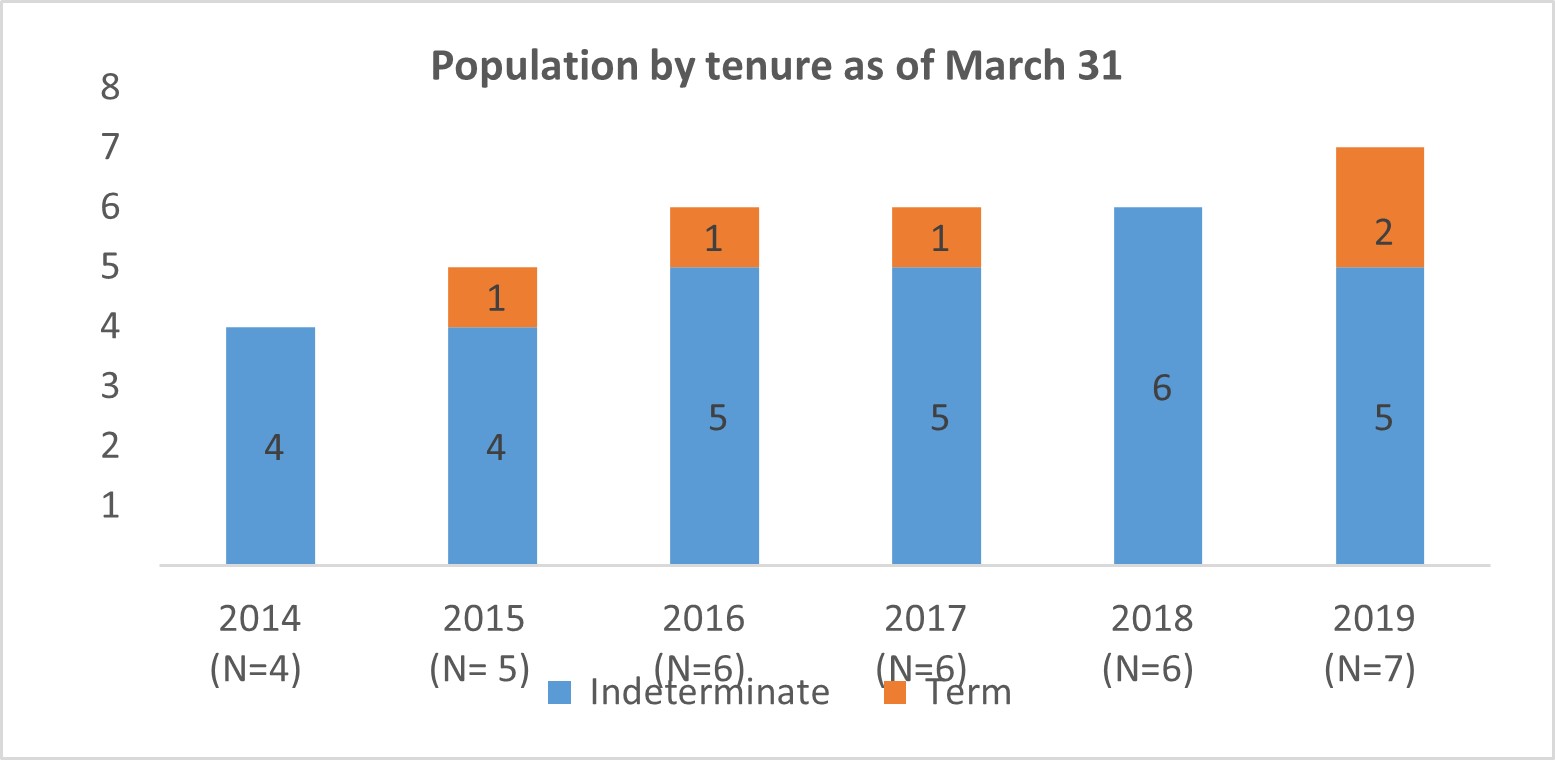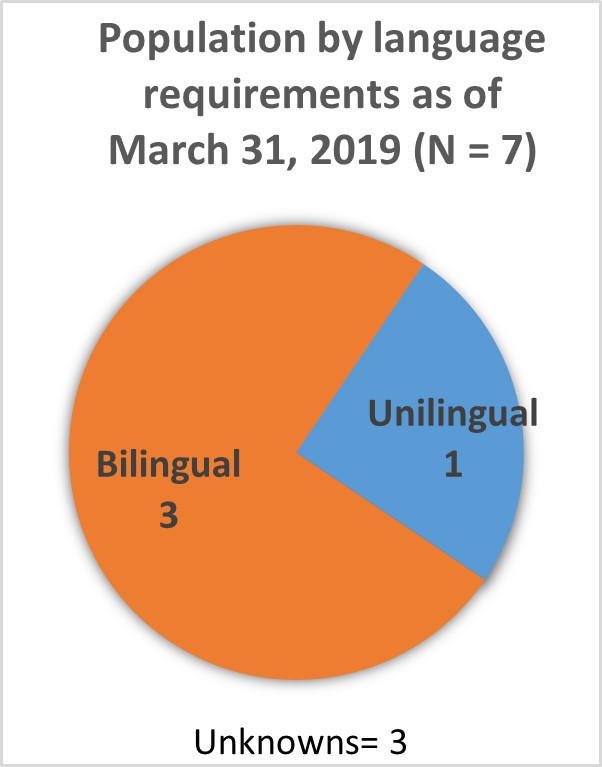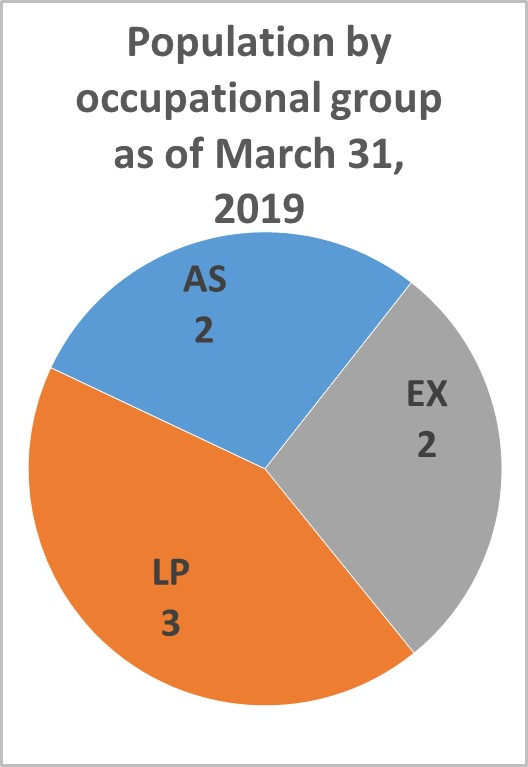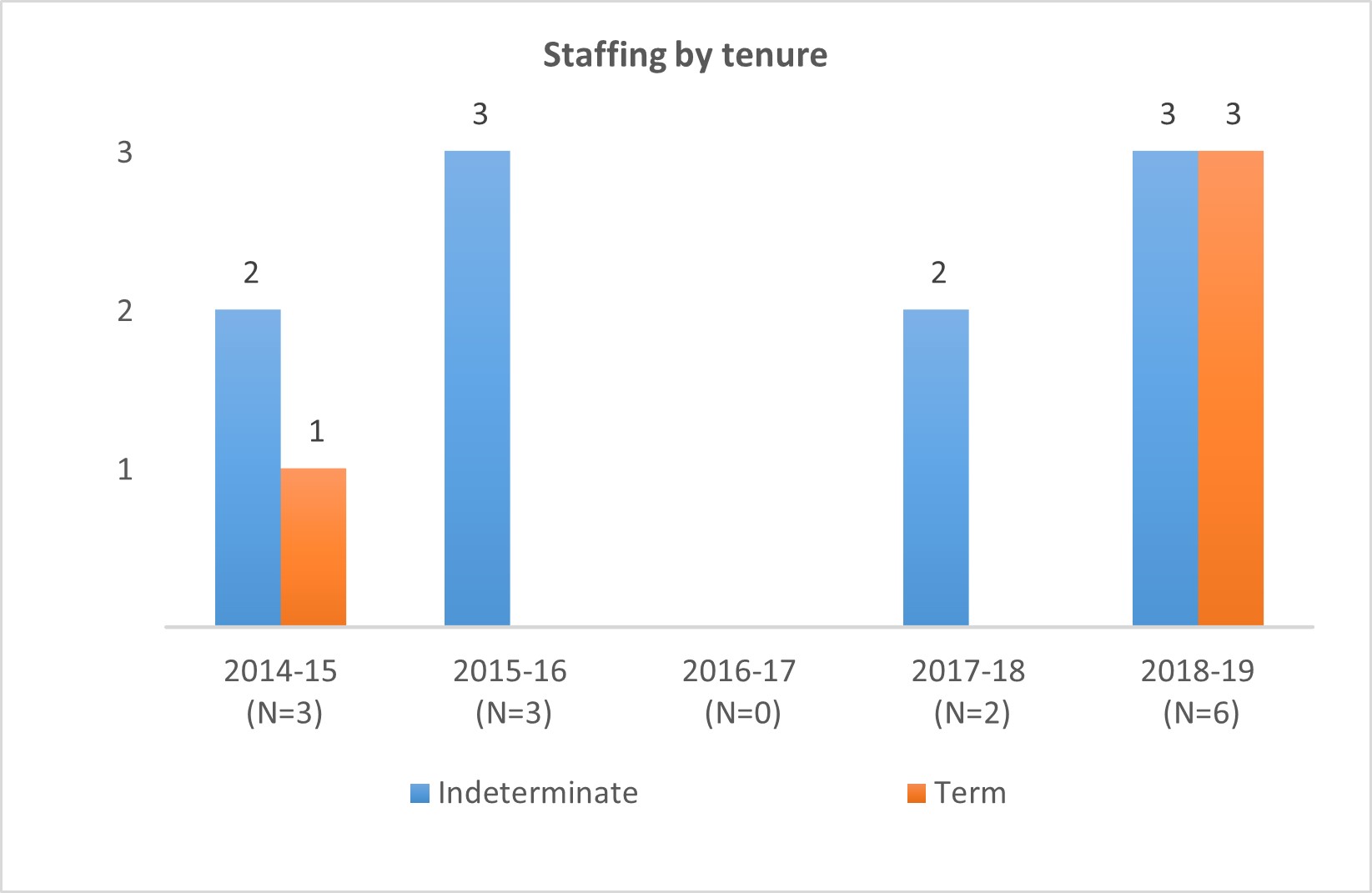Resident Meeting With Charles Randall Smith, Chairperson of the RCMP External Review Committee
August 13, 2019
Introduction
Deputy Head
Mr. Charles Randall Smith was appointed as the Royal Canadian Mounted Police (RCMP) ERC on June 18, 2019.
Mr. Smith’s biography is attached for your information in Annex A. Please refer to Annex B for key messages to convey to the new deputy head (DH).
Deputy Head from outside the Federal Public Service
As Mr. Smith is appointed from outside the public service, please refer to the enclosed deck for important information to convey about roles and responsibilities as they relate to staffing.
Appointee Exercising the Public Service Commission’s Authority for the First Time
As Mr. Smith is exercising the Public Service Commission’s (PSC) authority for the first time as DH, it is also suggested that the New Direction in Staffing (NDS) placemat for DHs be shared with him. A copy of this placemat is attached as Annex C.
Organizational Context
Mandate
The ERC is an independent administrative tribunal and a distinct organization separate from the RCMP. It conducts impartial case reviews and issues findings and recommendations for appeal decisions in certain RCMP labour relations matters. The ERC is the only such independent review mechanism available to RCMP members.
Population and Staffing Activities
Population
The ERC is a micro organization that has a population of 7 employees as of March 31, 2019. They also have employees on secondment from other organizations, but the data are not available.
Please refer to Annex D for additional details.
Staffing Activities
The ERC has an arrangement with Public Safety Canada to be its staffing service provider. In 2018-2019, the ERC proceeded with a total of 6 staffing activities:
- 1 appointment to the public service;
- 4 promotions; and
- 1 acting appointment.
Please refer to Annex D for additional details.
Time to Staff
There is insufficient data to provide information about the ERC’s time to staff.
Staffing Framework
New Direction in Staffing Implementation
The ERC worked collaboratively with the SSA during the development of their new staffing framework and has completed all of the mandatory requirements for April 1, 2016.
Appointment Delegation and Accountability Instrument annex d reporting
Use of the Public Service Official Languages Exclusion Approval Order and the Public Service Official Languages Appointment Regulations
The ERC does not have any outstanding cases under the Public Service Official Languages Exclusion Order or Public Service Official Languages Appointment Regulations. Therefore, no action is necessary for this organization.
Approved Deputy Head Exceptions to the National Area of Selection Requirements for External Advertised Appointment Process
The ERC’s DH has not approved any exceptions to the National Area of Selection.
Results of Organizational Cyclical Assessment
As a micro organization, the ERC may consult with the PSC in establishing an arrangement to undertake a cyclical assessment on its behalf, as per section 3 of the Appointment Delegation and Accountability Instrument (ADAI). They have not demonstrated an interest in the pilot project mentioned in the LHHR of May 24 but they indicated that they will provide their first cyclical assessment before the end of the fiscal year 2021-2022.
Inquiries and Trends
Within the last year, the ERC made ten inquiries to its SSA. Four were related to the Appointment Policy, two about the ADAI, and the others on various topics.
Oversight
Audits
The ERC had been identified by the PSC for an organizational audit in the PSC’s 2015-2016 audit plan. However, due to the transition to the new appointment policy framework, the PSC chose to complete a Staffing Assessment of ERC in lieu of an organizational audit. The purpose of this was to support the organization in implementing the NDS. The PSC completed the Staffing Assessment of ERC in 2016, which indicated that the organization was on track for meeting the requirements of the NDS.
The ERC was not part of the horizontal audits recently completed or underway such as the pilot System-wide Staffing Audit or the Horizontal Audit on Credential Validation.
Investigations
The ERC does not have any outstanding investigation cases.
Staffing and Non-Partisanship Survey Results
Due to the very small size of the organization, the ERC is not required to complete the Staffing and Non-partisanship Survey.
Diversity Profile
Given the small number of employees at the ERC, there is insufficient data to conduct an analysis.
Priority Entitlements and Veterans
The ERC does not have any person with a priority entitlement or veterans’ hiring information to report.
Non-Partisanship in the Public Service
There are no issues or concerns in terms of political activities and non-partisanship in relation to the ERC. Since 2013, the PSC has not received any candidacy request from ERC employees.
The PSC delivered an awareness session on employees’ rights and responsibilities in terms of political activity to ERC employees on January 31, 2019.
Public Service Commission Initiatives
The ERC has not participated in any PSC-led initiatives.
Staffing Support
Public Service of Commission Representatives and Organizational Contacts
The SSA assigned to this organization is Véronique Geoffroy and the primary organizational contact is Julie Brunet, Director, Corporate Services and Registrar.
PREPARED BY:
Véronique Geoffroy
SSA
Staffing Support Division
APPROVED BY:
Catherine Gendron
A/Director General
Staffing Support, Priorities and Political Activities Directorate
Patricia Jaton
Vice-President, Policy
Policy and Communications Sector
Annexes:
- Annex A – Biography
- Annex B – Key Messages
- Annex C – A New Direction in Staffing, highlights for deputy heads Placemat
- Annex D – Data on Population and Staffing Activities
Annex A
Biography
Charles Randall Smith was appointed Chairperson for the ERC for a five-year term beginning on June 18, 2019. Prior to that, he performed the role of Vice-Chairperson, effective April 11, 2019.
Mr. Smith served with the Canadian Armed Forces for over 40 years, 30 of which were as a legal officer with the Office of the Judge Advocate General (JAG). Mr. Smith served with JAG in a number of positions, reaching the rank of Lieutenant-Colonel and posted to a number of locations, including RMC Kingston, Ottawa, Petawawa, and Edmonton. He was also the Senior Legal Officer on deployment to Kandahar, Afghanistan.
He is a graduate of College Militaire Royal de St Jean, holds degrees in both Civil and Common Law from McGill University, and has a Master of Laws degree from the US Army JAG School in Charlottesville, Virginia. Mr. Smith is a member of the Law Society of Ontario.
Annex B
Key Messages when Meeting with a New Deputy Head
- Non-partisanship is a key pillar of the Public Service Employment Act (PSEA) and an essential element of both a professional public service and responsible democratic government. A non-partisan public service is one where appointments are based on merit and free of political influence, and where public servants perform their duties, and are seen to perform their duties, in a politically impartial manner.
- The Public Service Commission (PSC) retains the:
- Authority to investigate external appointment processes, cases of political influence or fraud in all appointment processes, and allegations of improper political activities;
- Authority to approve the exclusion from meeting official language proficiency requirements on medical grounds; and
- Responsibility for confirming the eligibility of former ministers’ and Governor General’s staff to participate in advertised internal appointment processes.
- The Appointment Delegation and Accountability Instrument encourages sub‑delegation to the lowest level possible within the organization.
- Organizations must respect priority entitlement provisions of the PSEA.
- Deputy Heads (DH) should champion the implementation of the Veterans Hiring Act within their organizations, so more veterans are hired into public service jobs.
- DHs shall not engage in any political activity other than voting. Upholding the non-partisan nature of the public service is the responsibility of all employees, whatever their level and duties. In particular, DHs play a leadership role in safeguarding non-partisanship as they oversee the conduct of their employees. The PSC, in collaboration with other stakeholders, including DHs, plays a key role in ensuring that the public service remains non-partisan.
- New Direction in Staffing – The PSC revised its appointment policy, delegation instrument and oversight model to streamline requirements, ensure that oversight is calibrated to the risks in the system and simplify staffing. The PSC’s new support model includes ongoing engagement with organizations through a single point of contact – Staffing Support Advisors – a renewed approach to guidance, and delivery of information sessions and targeted training. This collaborative approach, with its two-way communication, also assists DHs who are responsible for the monitoring of their organization’s staffing system. The PSC expects that organizations will be proactive in their oversight and continual improvement with respect to staffing.
- From Policy to Practice (P2P) - As the NDS journey continues, the PSC is working to meet the evolving needs of hiring managers and candidates, and to support the public service staffing system of the future. With P2P, we’re moving beyond policy to renew staffing and recruitment. Through collaborative innovation with our partners, we are exploring new ways to attract, recruit and assess candidates. We are also identifying opportunities to improve our programs and services, reducing PSC interventions, where possible. We are focusing our initial efforts on those areas where we have a direct impact on the staffing system, such as Priority Administration and the application process for student programs. We are streamlining processes from a user experience viewpoint, exploring new approaches to make the staffing process seamless and intuitive for candidates and hiring managers.
Annex C
A New Direction in Staffing
A merit-based system that is effective, efficient and fair
Appointment Policy
New focus on core requirements to provide sub-delegated persons greater discretion in making an appointment
- One Appointment Policy, no duplication with legal requirements
- Broader focus on values-based system, away from rules-based system
- Appointment Policy supported by streamlined guidance:
- A roadmap to the requirements in legislation, regulations and policy
- Options and considerations for decision-making where there is discretion
- Clear expectations for priority entitlements
- No restrictions to assessment methods for EX appointments
- Exceptions to National Area of Selection approved by deputy head
Delegation
New ability to customize organizational staffing system based on unique context and evolving business needs
- Deputy head to establish a direction on the use of advertised and non-advertised appointment processes
- Deputy head to establish requirement(s) for sub-delegated persons to articulate, in writing, their selection decision
- Clarity on requirements related to investigations
- Attestation form to reinforce the accountabilities of sub-delegated persons
All PSC monitoring and reporting requirements now found in the Appointment Delegation and Accountability Instrument
Monitoring and Reporting
Monitoring built by organizations, targeted to their needs
- Annual Departmental Staffing Accountability Report no longer required
- Annual reporting to the PSC limited to:
- use of Public Service Official Languages Exclusion Approval Order
- exceptions to the National Area of Selection approved by the deputy head
- results of any internal investigations
- Actions taken following any PSC investigations or audits.
- Deputy head responsible for ongoing monitoring of organizational staffing system based on the organization’s unique context
- assessment of adherence to requirements, based on organization’s own risks, at a minimum every five years
PSC Oversight
System-wide focus
- Government-wide compliance audit every two years
- Renewed Survey of Staffing administered in alternating years with government-wide audit
- System-wide effectiveness and efficiency reviews to support continuous improvement
- Targeted PSC audits as a result of identified system-wide or organizational risks or at deputy head request
- Investigations conducted when there is reason to believe there was political influence, fraud or improper conduct in an appointment process
This document should be read in conjunction with the Public Service Employment Act, the Public Service Employment Regulations, the PSC Appointment Policy and the PSC Appointment Delegation and Accountability Instrument
Annex D

Text version
| Year | Indeterminate population |
Term population |
Casual population |
Student population |
Total population |
|---|---|---|---|---|---|
| As of March 31, 2014 | 4 | 0 | 0 | 0 | 4 |
| As of March 31, 2015 | 4 | 1 | 0 | 0 | 5 |
| As of March 31, 2016 | 5 | 1 | 0 | 0 | 6 |
| As of March 31, 2017 | 5 | 1 | 0 | 0 | 6 |
| As of March 31, 2018 | 6 | 0 | 0 | 0 | 6 |
| As of March 31, 2019 | 5 | 2 | 0 | 0 | 7 |

Text version
| Linguistic requirements of the position | Population as of March 31, 2019 | Percentage of population as of March 31, 2019 |
|---|---|---|
| Bilingual | 3 | 75% |
| Unilingual | 1 | 25% |
| Unknown | 3 |

Text version
| Occupational group | Population as of March 31, 2019 | Percentage of population as of March 31, 2019 |
|---|---|---|
| LP – Law Practitioner | 3 | 43% |
| AS – Administrative Services | 2 | 29% |
| EX – Executive | 2 | 29% |

Text version
| Region | Population as of March 31, 2019 | Percentage of population as of March 31, 2019 |
|---|---|---|
| National Capital Region (NCR) | 7 | 100% |
| Non-NCR | 0 | 0% |
| Unknown | 0 |

Text version
| Fiscal year | Promotions | Lateral and downward movements | Appointments to the public service (includes casuals and students) | Acting appointments (excludes appointments of less than 4 months) | Total |
|---|---|---|---|---|---|
| 2014 to 2015 | 1 | 0 | 2 | 0 | 3 |
| 2015 to 2016 | 0 | 2 | 0 | 1 | 3 |
| 2016 to 2017 | 0 | 0 | 0 | 0 | 0 |
| 2017 to 2018 | 0 | 2 | 0 | 0 | 2 |
| 2018 to 2019 | 4 | 0 | 1 | 1 | 6 |

Text version
| Fiscal year | Indeterminate staffing activities | Term staffing activities | Casual staffing activities | Student staffing activities | Total staffing activities |
|---|---|---|---|---|---|
| 2014 to 2015 | 2 | 1 | 0 | 0 | 3 |
| 2015 to 2016 | 3 | 0 | 0 | 0 | 3 |
| 2016 to 2017 | 0 | 0 | 0 | 0 | 0 |
| 2017 to 2018 | 2 | 0 | 0 | 0 | 2 |
| 2018 to 2019 | 3 | 3 | 0 | 0 | 6 |
Page details
- Date modified: